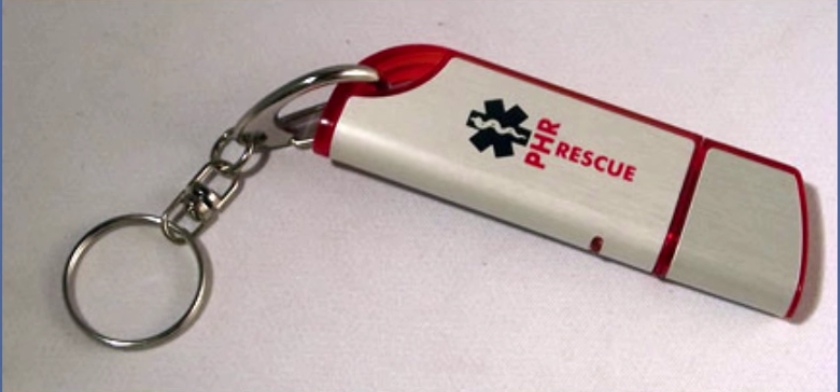MobiHealthNews' last crowdfunding roundup wasn't too long ago, but there are already a number of new digital health apps and devices on Kickstarter and Indiegogo. Read on below for a smart water bottle and a smart baby bottle, PERS and PHRs, an activity tracker for swimming, an app for anxiety, and more.
Flo is a smartphone-connected noncontact thermometer. Like Withings’ recently-announced thermometer, Flo can take a person’s temperature just by being held a few centimeters in front of their forehead. Although the user has to look at an app in order to see the temperature, an LED on the device itself lights up green for normal and red for a fever. The device can also store data internally. Flo has already met its goal, with $21,600 raised over a $20,000 goal.

Vidonn is crowdfunding a smartband which includes a fitness tracker and smartwatch features like call, text, and social media notifications. It also includes idle alerts similar to the Apple Watch, sleep tracking, and a heart rate sensor. The company wants to set the price point lower than other comparable devices, at $69.95. The company has already more than doubled its $30,000 funding goal.

We wrote about GreatCall’s Lively Wearable when they announced it last month at CES. The device, worn on the wrist or around the neck, tracks activity and offers a mobile emergency response service via a one-touch button that connects seniors to a team of highly trained agents in emergency situations. The Lively Wearable sends data it collects from the band to a companion app via Bluetooth. The app also offers users mental, physical, and social activity challenges throughout the day. The campaign just started and GreatCall has raised $400 of a $25,000 goal.

Swimmerix presents an interesting solution to some of the inherent problems with an activity tracker that tracks swimming. By including a base station that rests on the side of the pool, the London-based company can put fewer electronics in the wearable, making it smaller, lighter, and easier to waterproof. Swimmerix tracks heart rate, laps, strokes, time, distance, and calories burnt. So far Swimmerix has raised $6,600 (4,586 pounds) of a $34,825 (24,000 pound) goal.

Hydrate Mate is a connected hydration pack (think backpack-meets-water bottle) which informs the user of how much water they’re drinking and how much they have left via an app. This one passes the “do you really need an app for that?” test a little better than your average smart water bottle, because there isn’t really a way to monitor how much water is left in a hydration pack without taking it off. Hydrate Mate, from a team in the UK, has raised $2,450 (1,690 pounds) so far. Their goal is $17,400 (12,000 pounds).

PHR-Rescue represents one patient’s approach to solving the problem of health record interoperability. The product is a what founder Newt Malerman describes as “a 1/2 ounce flash drive that collects a personal health record, re-organizes it for quick scanning by practitioners, and scrubs the data clean of anything that would make the information valuable to an identity thief”. Malerman has a modest $2,100 goal for the campaign and has so far raised $185.

Drive is a device and app that connect to the user’s TV, video game systems, and connected devices to provide accountability for personal goals — especially fitness goals. The app limits the user’s time spent watching streaming video if they don’t meet goals. For fitness goals, it doesn’t just rely on the user to say whether they completed the goals — the app actually connects to Fitbit and Apple Health to check their work. Drive is seeking to raise $100,000. So far it's raised $873.

Matthew Bambach, a graduate student at the Maryland Institute College of Art, is developing Worry Quest, a gamified app for helping twentysomethings cope with anxiety. The app, which will be developed in consultation with beta testers and mental health professionals, lets the user envision themselves as a hero and their anxieties as a personalized monster. So far, the project has raised $3,100 of a $5,000 goal.














